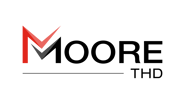 I know just how challenging it can be to deal with a Board of Directors.
I know just how challenging it can be to deal with a Board of Directors.
As CEO of THD, a fundraising agency that drives strategy and regularly presents program results, I appreciate that attempting to predict what your Board needs to hear from you can be intimidating and frustrating. The stakes are high, and it’s essential that your program is understood in the best possible light.
At the same time, I bring a unique perspective to this important topic, because I’m also the Chairman of the Board of Boyce Thompson Arboretum, Arizona’s oldest botanical garden. These dual roles provide me with some insights that might be of use in helping you navigate your relationship with your own Board of Directors.
Fundraising is different. Tell your Board why.
Boards are passionate and typically composed of very talented members. But their knowledge of fundraising is often elementary.
A survey by The Agitator (reviewed in an August 10th blog post) revealed that, when asked to “rate your CEO’s understanding of and commitment to effective fundraising,” 23% responded that they were “more of a hindrance than a help.”
But are you helping them?
We already know that many of your Board members (including your CEO) aren’t necessarily fundraisers. One is a high tech entrepreneur, another is an accountant, a third is from a big corporate foundation and so on. They’re all over the map and have little experience in your field.
But one thing they do have is opinions.
It’s logical to assume that they’re going to try to fit their professional experience into fundraising. Unfortunately, the dynamics are often totally different. While they may understand their own customer acquisition numbers, they believe that for nonprofits, people should just magically support the mission. They’re emotionally invested and engaged, and it’s hard for them to understand why their commitment doesn’t necessarily translate to a broad pool of donors who are willing to give.
That’s why you need to proactively educate your Board in order to gain legitimacy.
The only way to do that is to sit down with your Board and explain the data that goes into fundraising. Once they see how the numbers work, it's no longer a question of opinion, it's a question of facts.
For example, Board members sometimes put too much stock into the opinions of those outside your organization, like watchdog groups. Sound familiar? Educating the Board should often center on an actual ‘fundraising curriculum;’ a series of lessons on what numbers really matter and which mean a whole lot less.
| "The insights shared [by THD] help provide our board a more complete understanding of our fundraising work.” Lori Seader Director of Development, The Fresh Air Fund |
Context is key.
We’re fortunate that fundraising has entered an era when we can easily give our Board the context they need in order to hear you. A number of organizations like Blackbaud provide excellent quarterly benchmarking so that Boards can receive comparative data in terms of how their program is doing. You have to start with the "industry" and then narrow in on the organization on whose Board they serve because that gives them context.
They need to understand that there are really only four ways in which they can raise unrestricted revenue:
- Acquire more donors
- Retain more donors
- Get them to give more often
- Encourage them to give a larger gift
And because the marketplace has changed dramatically over the past decade, new ways of measuring progress have been developed.
Show them how much the competition has exploded, what it now costs to acquire a new donor, and what the long-term value of a donor can be. Ground them in the metrics of today’s fundraising landscape so that they can understand the challenges and appreciate them.
Provide them with long term impact.
I cannot emphasize this enough: Most Boards think in terms of your fiscal year when it comes to measuring fundraising performance.
They may not be happy with a 2:1 ROI in this fiscal year, but if we could show over a three year time frame or some longer extended period that we're actually at a 5:1, 6:1, 7:1, they may be more accepting of today’s ROI.
In addition, if you can provide them with concrete examples of how you turned a $10, $12, $30, $50 gift into a five million dollar planned gift, it can elongate and change the perspective that Board member has on the day-to-day or year-to-year work that’s being done.
Even at a very basic level, they have to understand that finding new donors is an expensive proposition which can only be looked at over the long term. Then, when you turn around and start to look at how your existing donors behave, you're able to really show that the ROI is actually quite good.
Identify a champion.
It’s always valuable to find someone on the Board who appreciates and values fundraising. It really doesn’t matter where they come from as long as they’re open minded and willing to learn. Then they can serve as your advocate in meetings, helping to lay down the foundation of understanding for the development process and the numerics.
If you can find them quickly, they’re going to be a key asset to you when it comes to helping educate their fellow Board members.
Most Boards have committees where the lion’s share of the work gets done. One of the most important is the Development Committee, which is typically tasked with fundraising oversight.
It’s important that its members get exposed to all facets of your organization’s fundraising programs, and that they be kept informed of progress on a regular basis. They are your conduit to the rest of the Board – along with other key committees such as the Executive and Finance Committees.
Friends, supporters, and advocates on these committees are going to be a key asset to you when it comes to helping educate their fellow Board members.
Be prepared, be bold, be authoritative.
Boards meet infrequently and have demanding agendas. What they value most is someone who will state his or her case simply, get to the point quickly, and be declarative.
Always have your facts straight and always be prepared to answer the question that you know is going to be asked. Don’t overwhelm them with data – be concise.
I can’t tell you how many times I’ve been in Board meetings and the data is too detailed, too granular and simply overwhelming. Sometimes, we think that the more data, the better, but often it’s just the opposite. Lots of data can obscure what you’re trying to say.
And finally, ask for help. You can turn to an agency partner, someone like us, for a helping hand. We are all invested in your success, and will be happy to help arm you with the information you need in order to get your Board’s support.

Ian Thompson
President/CEO, THD
To continue this conversation with the team at THD, click here.





